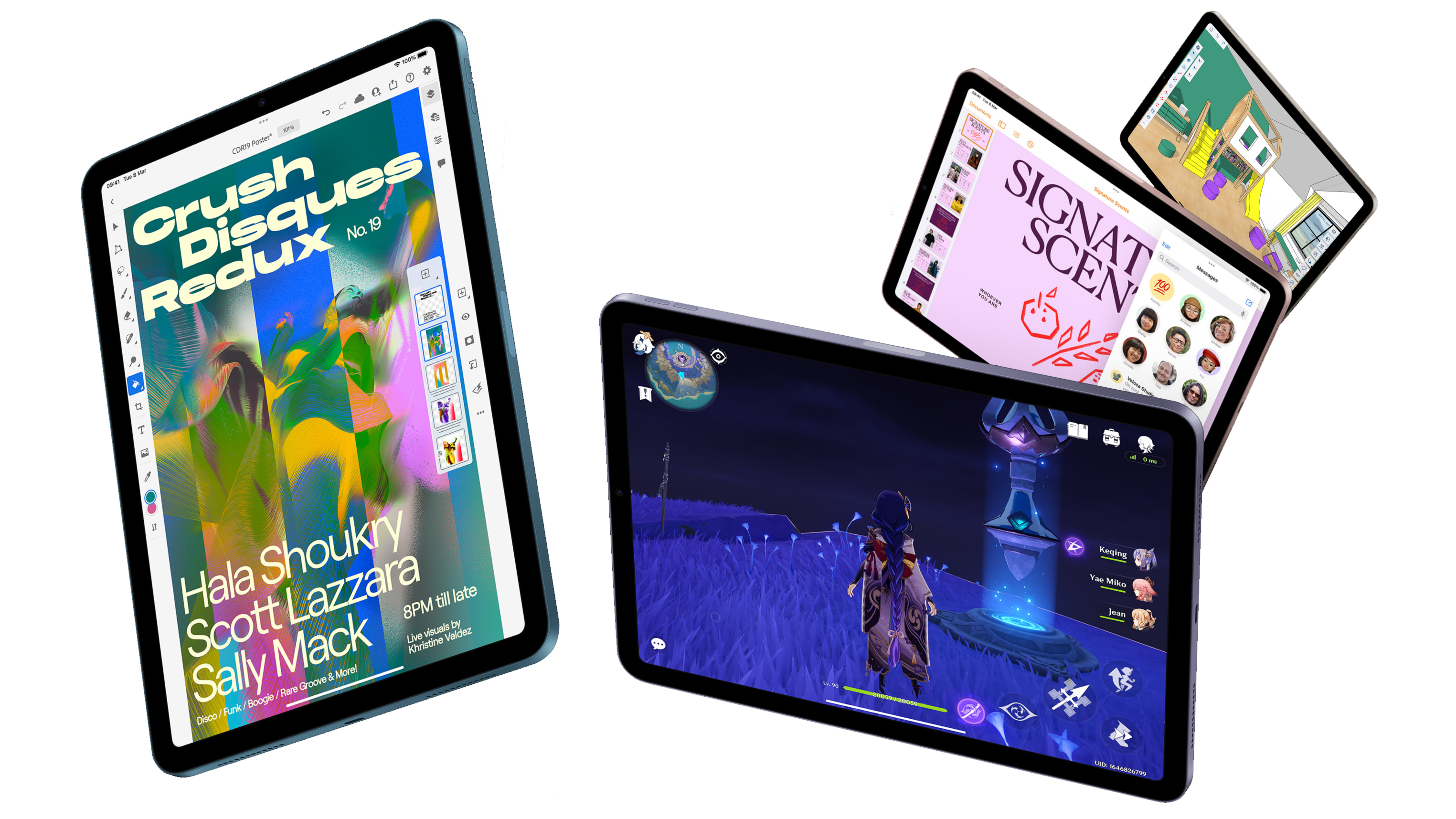5 things I wish I'd known before buying an iPad Air
The iPad Air is more powerful than the entry level Apple iPad – but it's not necessarily better for everyone


I shudder to think how much money I've spent on iPads over the years. From the very first generation to my current iPad Air 2022 I've owned iPads, iPad minis and iPad Pros in varying specs and sizes. The only iPad models I haven't owned are the cellular ones, because I work from home and just use my iPhone 13 as a hotspot if I'm out and need to connect my tablet.
The thing is, though, iPads have been the best tablets on the market since the entire modern tablet market was formed, so I don't really have any regrets. iPads rule and I'd recommend an Apple tablet over one from any other maker every day of the week.
All that said, though, as much as I love my current iPad Air, there are a few things I wished I'd know before buying it, or have learned since owning it. As such, here are 5 things I think you should know about Apple's mid-range tablet.
1. The M1 processor feels overkill for my needs
The arrival of the M1 processor in the iPad Air was awfully exciting: now my iPad could be as powerful as my M1 MacBook Pro! But it turns out that I don't need my tablet to be as powerful as a MacBook Pro, because I already have a MacBook Pro. If Apple were to bring Logic Pro X to iPadOS then that might change my mind, but right now the only real reason for the M1 is gaming, which I don't do much of, and Stage Manager in iPadOS 16, which is currently extremely unimpressive. That said...
2. You still need the M1 if you want to use some pro features
iPadOS 16 has much better external display support, so if you're looking for Pro-style power without the price tag of the iPad Pro then that's worth taking into consideration. It also has better virtual memory management to free up RAM for really demanding apps.
3. I'm not a fan of Touch ID
TouchID on the iPad Air is like plugging in a USB 2.0 device: whatever bit of your iPad you go to touch, it's the wrong bit. The little on-screen indicator helps you find it, but it's still always in the wrong place. It's also super fiddly compared to the Touch ID sensors of old, so that annoys me too.
4. The camera remains a weak point
It's better than it used to be, but the iPad Air camera is still not up to modern standards and really awkward to use. The front-facing one is better, with 12MP autofocus and Centre Stage to keep you in focus in FaceTime, but the rear camera assembly is not great and the M1's imaging features don't dramatically improve it.
Get all the latest news, reviews, deals and buying guides on gorgeous tech, home and active products from the T3 experts
5. If you have other high-end Apple tech then an iPad could be a better buy
I can't help noticing that the things I like least about my iPad Air are when I compare it to my other Apple hardware. The camera isn't good, but I have an iPhone 13 Pro. It doesn't need an M1 processor, because I have a MacBook Pro. I don't need it to multitask, because I have a proper computer for that. So I think that unless you plan to do a lot of heavy-duty stuff on a tablet, if you already have an iPhone and a recent MacBook Air or MacBook Pro there's no real need to buy a more expensive iPad than the standard one (but wait to buy one of those: we're expecting a new entry-level iPad next month).
Where I think the iPad Air works best is when you don't also have a Mac. So for example if you're a student looking for a portable all-rounder for studying and sofa-surfing, or an iPhone user who needs a bigger canvas to do documents or drawing on the train, then it's brilliant for that. But when I look at what I actually use my iPad for, the Air is overkill: I read magazines, check websites, tinker with Google Docs, listen to music and fight people on the Internet, all of which the standard iPad Air already excels at. So if you think you want an iPad Air I'd really recommend you check out October's entry level one first. It may be all the iPad you actually need.
Writer, musician and broadcaster Carrie Marshall has been covering technology since 1998 and is particularly interested in how tech can help us live our best lives. Her CV is a who’s who of magazines, newspapers, websites and radio programmes ranging from T3, Techradar and MacFormat to the BBC, Sunday Post and People’s Friend. Carrie has written more than a dozen books, ghost-wrote two more and co-wrote seven more books and a Radio 2 documentary series; her memoir, Carrie Kills A Man, was shortlisted for the British Book Awards. When she’s not scribbling, Carrie is the singer in Glaswegian rock band Unquiet Mind (unquietmindmusic).
